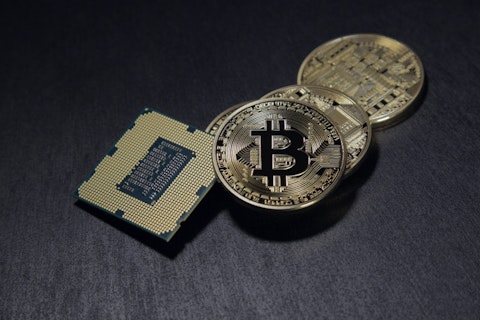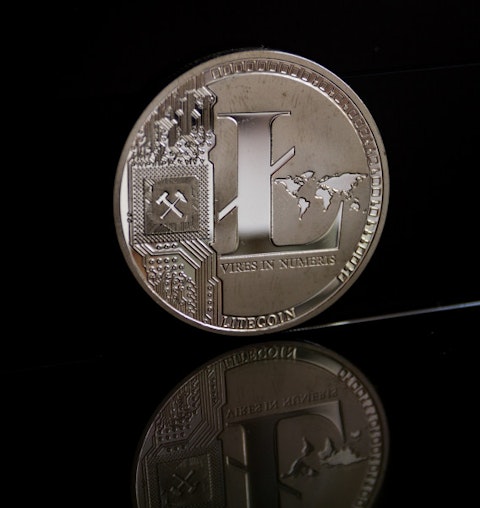The best cryptocurrency hardware wallets represent one of the safest ways to store cryptocurrencies like Bitcoin. As Bitcoin and other cryptocurrencies (collectively known as altcoins) soared in value, they attracted a lot of attention and a lot of people scrambled into the new market, looking for opportunities to get rich quickly or find new ways to diversify their investments aside from more traditional assets.
Unfortunately, this trend also attracted a lot of scammers, who employ different schemes to get other people’s cryptocurrencies in their own possession. Some launch various projects and try to get other people to fund them, others engage in ordinary theft by hacking computers and cryptocurrency wallets. Because the cryptocurrency industry is largely unregulated, most of these crimes usually go unsolved. However, hardware and software companies jumped to the aid of cryptocurrency “hodlers” by releasing more secure software and hardware wallets.
Even though cryptocurrencies are exclusively virtual and represent a string of symbols, they still have to be stored somewhere, just like regular money. One has the possibility to keep them in a wallet app like MyCellium or Breadwallet (take a look at 11 best Bitcoin Wallet Apps for iPhone and Android) or to even keep them on a cryptocurrency exchange account, although the latter method is highly inadvisable due to many hacks like the ones at Mt. Gox, Bitstamp, or Bitfinex.

Pixabay/Public Domain
Another option to keep Bitcoin and altcoins safe is to store them on paper wallets, which is also the simplest way. A paper wallet represent a piece of paper that contains the private and public keys to cryptocurrencies. The paper has to be kept safe and away from fire and water. You can even print the keys on a piece of paper yourself, write it down, or even mint the keys on a real physical coin, which is cool, but can be unpractical.
Then there are cryptocurrency hardware wallets. These are small physical devices that can be connected to the Internet in order to conduct transactions, but mostly are offline, which makes them highly secure. The best cryptocurrency hardware wallets are preferred by people that own large amounts of cryptocurrencies and they can even be stored in safes or bank vaults. Many wallet apps are compatible with the best cryptocurrency hardware wallets in order to simplify transactions, but even a regular physical device like an external hard drive or a USB flash drive can act as a hardware wallet, given that it is offered some additional protection to make sure that it is not stolen or lost. The main risk with keeping cryptocurrency in a hardware wallet is that once it’s gone (either lost or damaged), the cryptocurrency is unrecoverable.
As a side note, it is estimated that there are around 3.79 million Bitcoins that are lost, according to estimations made by Chainalysis cited by Fortune, with the bulk of it (2.55 million Bitcoins) lost by “hodlers”, as people that stored their Bitcoins on a hardware device might have lost or misplaced these devices. Chainalysis estimates that around half of 5.11 million Bitcoins that are out of circulation (not used in transactions) might have been lost, while more conservative estimates put this number at 30%, which represents around 1.50 million Bitcoins.
Still “cold storage” or keeping cryptocurrency offline is among the safest ways to make sure that the cryptocurrency remains in one’s possession and is not stolen. We have compiled a list of 7 best cryptocurrency hardware wallets that are on the market today.
7. OpenDime
OpenDime is a device that plugs in the USB port of a computer or can be used with a phone. The device is compact and very easy to use. It creates a Bitcoin address in order to conduct transactions. It’s very cheap (at around $40 apiece) and has a very simple look, with all internal circuitry exposed (barebone system). The idea of OpenDime is to gift Bitcoin to someone rather than use it yourself. You have to send the preferred amount to the address associated with the respective OpenDime device and the receiver has to push through a hole at the back in order to access the private keys. Then the keys can be loaded into other Bitcoin wallet and spent. Pushing through the hole, unseals the wallet and it cannot be sealed again.

Pixabay/Public Domain
6. Bitlox
Next in our list of best cryptocurrency hardware wallets is Bitlox. Bitlox is a Bitcoin and Ethereum wallet that looks like a smart card and is only 4mm thick, so it can be fitted in a wallet. It has an e-ink screen, an internal batter and communicates with other devices via Bluetooth. Bitlox costs around $98 and supports multiple PIN codes, to access the wallet, to make transactions and even a special PIN to erase all the data stored on it.

Pixabay/Public Domain
5. Digital Bitbox
Digital Bitbox has a very simple design, which resembles a USB flash drive. The private keys are stored on a high-security chip to prevent physical extraction and has a slot for MicroSD cards for backup and recovery. Digital Bitbox doesn’t have a screen and has a single physical button, which has to be pressed in order to authorise transactions under two-factor authentication. Digital Bitbox costs $79 and comes with a microSD card included.

Sergey Tarasov/Shutterstock.com
4. KeepKey
Another wallet in our list of best cryptocurrency hardware waller is KeepKey. One of KeepKey’s advantages is that it supports Litecoin, Dogecoin, Namecoin, Testnet, Ethereum and Dash, in addition to Bitcoin. KeepKey has an OLED screen that displays all sorts of notifications, but it also costs $129. KeepKey generates and stores private keys using a random number generator and the keys are then used to sign transactions. The private keys are stored in an isolated storage area permanently and the user has a one-time chance to backup the wallet through a 12-word passphrase. Each transaction is signed by the wallet using the private keys and have to be manually approved by using the button on the device.

Copyright: pogorelovaolga / 123RF Stock Photo
3. Trezor
Trezor is a deterministic wallet, which uses a system of deriving keys from a single point, or a seed. The seed allows to backup and restore the wallet and is usually represented by a mnemonic phrase. The Trezor wallet also has its own software, Trezor Bridge, which is used to set up the device and offers access to the wallet’s interface. Trezor costs $99 and supports a number of cryptocurrencies, including Bitcoin, Ethereum, Ethereum Classic, ZCash, Litecoin, Namecoin, and Dash.

Pixabay/Public Domain
2. Ledger Blue
Ledger Blue is a sophisticated cryptocurrency hardware wallet that comes with a 3.5-inch touchscreen and supports 25 cryptocurrencies. The touchscreen allows a user to interact with various apps specific to different cryptocurrencies and sign transactions. Ledger Blue costs more than $300, which makes it the most expensive among the best cryptocurrency hardware wallets in our list. It also stores private keys in an isolated environment, using a double-chip architecture. The separate micro-controller is used to run companion apps, which allows Ledger Blue to add new cryptocurrencies without compromising the security.

vonDUCK/Shutterstock.com
1. Ledger Nano S
Ledger Nano S is smaller and cheaper than Ledger Blue, but it supports the same cryptocurrencies. It represents a USB-powered device of the size of a USB drive and comes with a small screen to view transactions and sign them physically using a hardware button. Ledger Nano S comes with a companion Google Chrome apps for cryptocurrencies and it can be used with other software wallets. Ledger Nano S costs around $95.

Pixabay/Public Domain
These are the 7 best cryptocurrency hardware wallets that you can buy in order to secure your cryptocurrencies. A small piece of advice is to get two wallets and keep one for backup purposes in a very secure environment, such as a safe or a vault.
Disclosure: none





